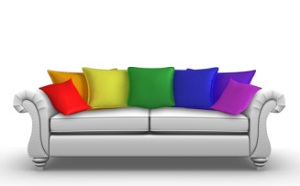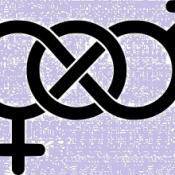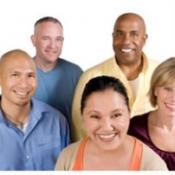 The question often comes up among LGBT (lesbian, gay, bisexual, transgender) people: should they see a gay therapist, or would they would be comfortable with a gay-friendly therapist? This is a personal decision people need to make for themselves, but as in choosing any therapist, it is important to find a professional who has the education, the empathy, and the ability to understand your individual needs.
The question often comes up among LGBT (lesbian, gay, bisexual, transgender) people: should they see a gay therapist, or would they would be comfortable with a gay-friendly therapist? This is a personal decision people need to make for themselves, but as in choosing any therapist, it is important to find a professional who has the education, the empathy, and the ability to understand your individual needs.
Although there are many gay-affirmative and gay-friendly therapists, sometimes it is important to find a therapist who is a member of the gay community. The process of therapy is a very personal one, and for many people it is vital that their therapist be someone who understands and can directly relate to their life experiences. For many LGBT people, there is an internal process that makes it important for them to work with a therapist who has direct knowledge of what it is like to live as a member of the gay community.
So what should you look for when choosing a therapist who specializes in LGBT issues? First off, if having a gay therapist is important to you as a client, then you should make sure you find a therapist who is open about his or her sexual orientation and is willing to openly discuss yours. A gay therapist who is comfortable with his or her own sexuality will be more open to discussing issues that you may be facing as an LGBT person.
But sexual orientation is not all that one should look for in a therapist. It is also important to ask questions about the therapist’s education, training, and understanding of the issues that can face LGBT clients. Your therapist should be familiar with issues of sexuality, coming out, internalized homophobia, HIV/AIDS, depression, and self-destructive behaviors, as well as more traditional issues like couples, dating, social skills, and relationships as they pertain to the LGBT population. Not all gay therapists will be experts on all of these topics, but you want to find the one who has the knowledge to address your personal needs.
Beware of therapists who promise to treat or “cure” homosexuality, as this type of therapy has been found to be unsuccessful. It can often be damaging and lead to low self-esteem, guilt, self-destructive behavior, and even suicide. A good therapist will assist you in finding your personal comfort with your sexuality and not try to “cure” or “fix” you.
Another issue that can come up for discussion in therapy is sex. For many gay people, it is important to have a forum where they can talk openly about sex and the myriad issues that surround intimacy. Ask your therapist whether he or she will be comfortable talking openly about sex and other personal issues that affect you as a client.
As much as it is important to learn about your therapist’s sexuality and commitment to working with LGBT clients, it is equally important to make sure that your therapist will maintain appropriate boundaries in regard to discussing his or her personal experiences. Under no circumstances should there be sexual contact or behavior between client and therapist.
An excellent way to find an LGBT therapist is to use the Advanced Search function here at GoodTherapy.org and enter the search term “LGBT Issues.” You can also check with your local gay and lesbian center, which will often have a resource list of local therapists who work with the LGBT community. Referrals from friends are another great resource in the search for a good therapist who can address your personal needs.
Finding the right therapist for you is vital in order to create the most beneficial outcome of your commitment to go into therapy. Take the time to interview your therapist, making sure that you find the right person who will be able to assist you in your rediscovery of yourself. Whether the therapist is gay or gay-friendly, the right match of therapist and client is the foundation for an exceptional therapeutic experience.

The preceding article was solely written by the author named above. Any views and opinions expressed are not necessarily shared by GoodTherapy.org. Questions or concerns about the preceding article can be directed to the author or posted as a comment below.

 Coming Out in Adulthood: Challenges and Expectations
Coming Out in Adulthood: Challenges and Expectations Queer: Intersections of Gender and Sexual Identity
Queer: Intersections of Gender and Sexual Identity Sex, Gender, and Personal Identity Concepts
Sex, Gender, and Personal Identity Concepts

